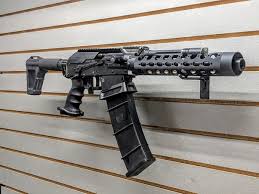The national firearms act (NFA) is a critical piece of legislation in the United States that regulates the ownership, transfer and manufacture of certain types of firearms and firearm accessories. In 1934, the NFA was among the first laws in the federal government to enforce strict control on certain types of firearms and has had a long-lasting impact on gun ownership as well as regulation across the nation.
Background and Purpose
The NFA was introduced in response to the rising violence associated with organized crime in the Prohibition period. The primary goal was to curb the use of firearms such as machine guns and shotguns that were sawed off, that were frequently employed in criminal activity. By imposing heavy taxes and strict registration requirements, the government sought to restrict the use of the weapons.
Key Provisions
The NFA includes a range of firearms and their accessories, such as:
Machine guns: Completely automated firearms capable of continuous fire with a single trigger pull.
SBRs: Short-Barreled Rifles (SBRs): Rifles with the barrel length being less than 16 inches, or an overall length less that 26 inches.
Short-Barreled Shotguns (SBSs): Shotguns with a barrel length less that 18 inches and an overall length of less than 26 inches.
Suppressors (Silencers) are devices that are that are designed to cut down the sound of a gunshot.
Destructive Devices: This is grenades, bombs, and other explosive weapons, and firearms that have bores greater than half an inch in diameter for example, rifles that are large caliber.
Registration and Taxation
One of the key aspects that is a part of NFA is the requirement to firearms proprietors to record their NFA-regulated products in the Bureau of Alcohol, Tobacco, Firearms and Explosives (ATF). The process involves submitting detailed information about the firearm and the owner, as well as a fingerprint card and a photo. Furthermore, the NFA has a tax of $200 on the production or transfer of most NFA-regulated items, with some exceptions such as the transfer the AOW (Any Other Weapon) (any other weapon) that is subject to a $5 tax.
Impact and Compliance
Since its beginning since its creation, the NFA has significantly influenced the regulation of firearms in the United States. Compliance with the NFA requires careful adherence to the specific provisions of the law, and violations can result in harsh penalties, such as the possibility of fines and even imprisonment. In addition, the NFA has also established an example for later gun control laws including legislation like the Gun Control Act of 1968 and the Firearm Owners Protection Act of 1986.
Modern Considerations
In recent years there has been a continuous debate over the NFA’s importance and effectiveness. Some advocates advocate updating the law to reflect the latest technology and ownership trends, whereas others argue for its repeal, citing Second Amendment rights. Whatever the debate however, the NFA remains a cornerstone for federal firearms regulation, defining the laws of gun ownership in America.
In summary in a nutshell, it is clear that the National Firearms Act is a landmark law that has played a significant part in regulating certain kinds of firearms and their accessories in the United States. Its requirements regarding registration and taxation as well as strict controls have been crucial in shaping the legal framework for firearms and are still influencing contemporary discussions on gun regulation.



